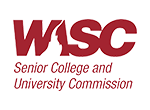
Graduate Certificate
in Banking
4-week
COURSES
Start sooner and finish faster with our innovative course design.
Year-round
enrollment
Our admissions team reviews applications year-round.
200k+ Alumni Worldwide
Become a member of NU’s global community.
Program Overview
Gain the knowledge and skills needed to advance your banking career or to establish a solid foundation for pursuing an MBA with the area of specialization in banking. In the Graduate Certificate program at National University, you’ll take courses in financial management, financial institution management, and bank regulation, preparing you for a leadership role in your field.
Courses can be completed 100% online.

The Western Association of Schools and Colleges (WASC) accredits public and private schools, colleges, and universities in the U.S.
Course Details
Course Listing
Program Requirements
- 4 courses; 18 quarter units
Course Name
Prerequisite: FIN 310, or ACC 600
A study of corporate financial management, through case studies and/or term projects, this course covers issues such as sources of long-term financing, cost of capital, capital budgeting, dividend policy, mergers and acquisitions, bankruptcy and reorganization, the globalization of finance, ethical standards, information technology, and financial strategy.
Prerequisite: FIN 609A
This course presents an overview of Financial System, Financial Markets, and Commercial Banking in the 1990s to the 21st century in the US and globalsetting. It covers asset and liability management problems for depository institutions including management issues, and performance analysis of nondepository entities. In addition, emphasis is placed on interest rates and interest rate risk management. International Bond Markets and new Issue Procedures in the Bond Market, digital money, and alternative electronic payment systems will also be discussed.
Prerequisite: FIN 609A
This course introduces the regulation of financial institutions in the United States. The course addresses the history of the banking industry in the United States, the basic rationales for regulating banks differently than other enterprises, the restrictions imposed upon banks and other financial institutions, the causes and consequences of bank failures and their relationship to regulation, and the rise of the shadow banking system.
Students must select one (1) of the following courses.
Course Name
Prerequisite: FIN 609A
This course focuses on identifying, measuring and managing the most typical risks in financial institutions. The aim of this course is to give the student a detailed knowledge of the nature of these risks, how to measure the exposure that a bank has to such risks and an understanding of some ways in which such risks can be managed by a bank. Students will learn how these risks affect the amount of regulatory and economic capital a bank should retain to protect depositors and the market from unexpected events. Students will learn how to compute the Basel II and Basel III capital requirements.
Recommended: Prior completion of: MNS 601
In this course, students study the price system, market structure, and consumer theory as they apply to managers in a variety of decision-making environments. This course covers the use of mathematical and economic decision-making tools for determining optimal levels of output, resource usage, and capacity planning.
A study of accounting concepts and reporting techniques applied in a management decision-making context, Students analyze accounting data from real-world case studies and present their analysis, conclusions, and recommendations. Managerial accounting models used by diverse enterprises in virtually all industrialized nations include cost accounting and the behavior of costs, budgeting, differential analysis, and responsibility accounting are examined. Reporting techniques involving the use of current spreadsheet and graphic presentation technology are presented.
Program Learning Outcomes
Upon successful completion of this program, students will be able to:
- Apply capital budgeting techniques to the evaluation of alternative investment projects.
- Compare and contrast agency problems and methods used to ensure owners’ and managers’ goals are congruent.
- Apply the asset market approach to a commodity market.
- Evaluate interest rate behavior and its impacts on the economy and businesses.
- Analyze investment risk and recommend the proper rate of returns associated with that risk
Admissions
Enrolling in a university is a big decision. That’s why our dedicated admissions team is here to guide you through the admissions process and help you find the right program for you and your career goals.
To that end, we’ve simplified and streamlined our application process, so you can get enrolled in your program right away. Because we accept and review applications year round, you can begin class as soon as next month, depending on your program and location of choice.
Learn more about undergraduate, graduate, military, and international student admissions, plus admissions information for transfer students. You can also learn more about our tuition rates and financial aid opportunities.
To speak with our admissions team, call (855) 355-6288 or request information and an advisor will contact you shortly. If you’re ready to apply, simply start your application today.

4 WEEK COURSES
Why Choose National University
- Four-Week Courses
- 75+ Degree Programs
- Online or On-Site
- Year-Round Enrollment
- Military Friendly
We’re proud to be a veteran-founded, San Diego-based nonprofit. Since 1971, our mission has been to provide accessible, achievable higher education to adult learners. Today, we educate students from across the U.S. and around the globe, with over 240,000 alumni worldwide.

“National University has impacted my career. You can immediately apply what you learn in class to your business.”
-Francisco R., Class of 2016

FLEXIBLE SCHEDULE

Year of You Scholarship
Do you qualify for a needs-based scholarship? Learn more about the NU Year of You Scholarship and other scholarship opportunities to unlock the door to your dreams!
Program Disclosure
Successful completion and attainment of National University degrees do not lead to automatic or immediate licensure, employment, or certification in any state/country. The University cannot guarantee that any professional organization or business will accept a graduate’s application to sit for any certification, licensure, or related exam for the purpose of professional certification.
Program availability varies by state. Many disciplines, professions, and jobs require disclosure of an individual’s criminal history, and a variety of states require background checks to apply to, or be eligible for, certain certificates, registrations, and licenses. Existence of a criminal history may also subject an individual to denial of an initial application for a certificate, registration, or license and/or result in the revocation or suspension of an existing certificate, registration, or license. Requirements can vary by state, occupation, and/or licensing authority.
NU graduates will be subject to additional requirements on a program, certification/licensure, employment, and state-by-state basis that can include one or more of the following items: internships, practicum experience, additional coursework, exams, tests, drug testing, earning an additional degree, and/or other training/education requirements.
All prospective students are advised to review employment, certification, and/or licensure requirements in their state, and to contact the certification/licensing body of the state and/or country where they intend to obtain certification/licensure to verify that these courses/programs qualify in that state/country, prior to enrolling. Prospective students are also advised to regularly review the state’s/country’s policies and procedures relating to certification/licensure, as those policies are subject to change.
National University degrees do not guarantee employment or salary of any kind. Prospective students are strongly encouraged to review desired job positions to review degrees, education, and/or training required to apply for desired positions. Prospective students should monitor these positions as requirements, salary, and other relevant factors can change over time.